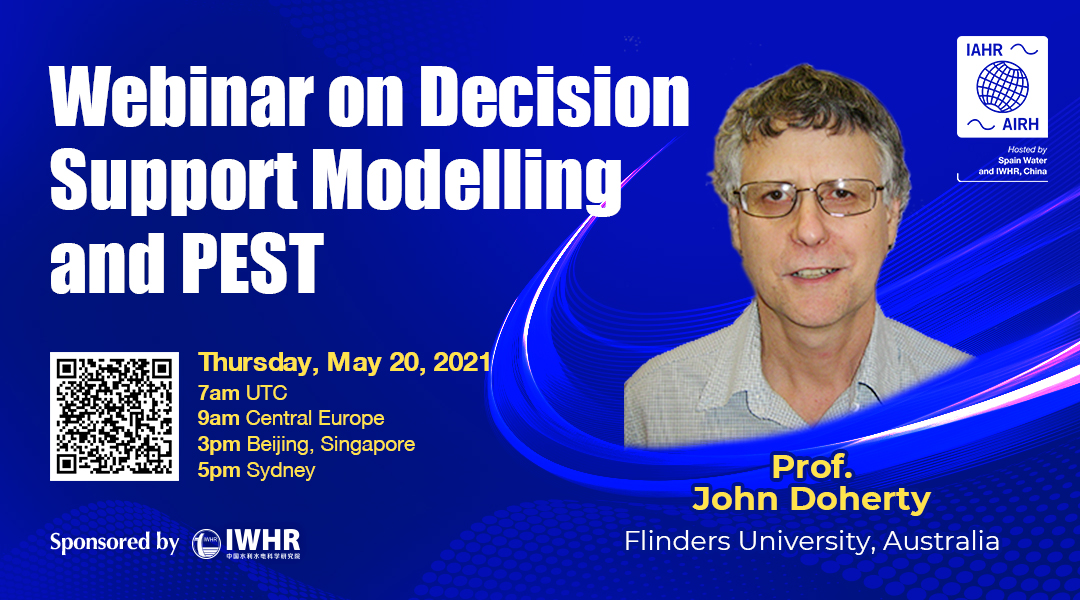
On May 20, 2021 (Thursday), IAHR is organizing a Webinar on Decision Support Modelling and PEST, featuring Prof. John Doherty, the world's top scholars and researchers and the author of PEST, a software package that is widely used for groundwater model calibration and uncertainty analysis.
This free webinar will be live streamed on the IAHR website from 7am UTC | 9am Central Europe | 3pm Beijing | 5pm Sydney.
John has worked for over 40 years in the water industry, first as an exploration geophysicist and then as a modeler. These days, as an employee of his own company, he undertakes consulting on decision-support modelling. As part of an industry-funded project administered by Flinders University, Australia, he also undertakes research, programming, education and supervision of PhD students.
Sponsored by China Institute of Water Resources and Hydropower Research, this webinar is led by IAHR’s Technical Committee on Groundwater Hydraulics and Management. The committee chair, Prof. Alberto Guadagnini (Politecnico di Milano) will chair this event, and a committee member, Dr. Xin He (China Institute of Water Resources and Hydropower Research), will join the two experts in a panel discussion.

The first part of the webinar is somewhat philosophical in nature. It discusses the role of numerical simulation in support of environmental management. It shows why data assimilation and uncertainty analysis are essential ingredients of decision-support modelling – and that numerical simulation should be undertaken in direct support of these activities at any study site. This requires that numerical models be stable and fast-running. In fact, excessive model complexity can actually erode a model’s ability to support environmental management rather than help it. Examples of linear and nonlinear uncertainty analysis, undertaken by members of the PEST and PEST++ suites at real-world sites, are included in the talk.
The second part of the webinar discusses some implementation details of PEST and PEST++. A distinction is made between “calibration” and “history-matching”. The first searches for parameter uniqueness. This requires some form of regularization. Singular value decomposition and Tikhonov regularization are discussed. Tikhonov regularization requires that expert knowledge about preferred parameterization be embodied in one or a number of covariance matrices. History-matching, on the other hand, is broader than this. Here the same covariance matrices that were previously used to attain parameter uniqueness through calibration, are used for the opposite purpose. The end-product of calibration-constrained uncertainty analysis is a suite of parameter fields that are all different, yet all allow a model to replicate the historical behavior of a system. This webinar discusses the tools available in the PEST and PEST++ suites that can implement calibration, calibration-constrained uncertainty analysis, and development of appropriate covariance matrices.
For more details and to participate, please visit: https://www.iahr.org/index/detail/366 and click Go to Live Page. When asked to sign in, please use your IAHR account (or create a free account if you do not have one) to watch the webinar, comment and ask question right from a browser. You can also raise questions before the webinar even starts by sending emails to iahrBeijing@iahr.org.
















